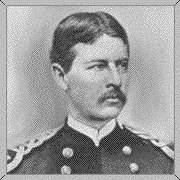 Walter
Reed was
born in Gloucester County, Virginia in 1851. He received his medical
degree from the University of Virginia. His medical training occurred
at the Bellevue Hospital Medical College. In 1875 he joined the
United States Army Medical Corps as a surgeon.
Walter
Reed was
born in Gloucester County, Virginia in 1851. He received his medical
degree from the University of Virginia. His medical training occurred
at the Bellevue Hospital Medical College. In 1875 he joined the
United States Army Medical Corps as a surgeon.
During his military career, he served as a curator of the Army Medical Museum in Washington, DC and as a professor of bacteriology at the Army Medical College.
Reed contributed to our understanding of the role of insect vectors in transmitting disease through his work with yellow fever. He demonstrated that the Aedes aegypti mosquito transmits yellow fever. He worked in Cuba to eradicate the mosquito and thus control the spread of the illness.
Walter Reed died on November 22, 1902.
References
Daintith, J. Mitchell, S., Tootill, E. (1981). A Biographical Encyclopedia of Scientists. New York: Facts on File.
Debus, A.G. (1968). World Who's Who in Science: A Biographical Dictionary of Notable Scientists from Antiquity to the Present. Chicago: Marquis.
Howard, A.V. (1951). Chamber's Dictionary of Scientists. London: Chambers.
McGraw-Hill (1966). McGraw-Hill Modern Men of Science. New York: McGraw Hill.
Taton, R. (Ed.) (1963). History of Science: Ancient and Medieval Science from the Beginnings to 1450. New York: Basic Books.